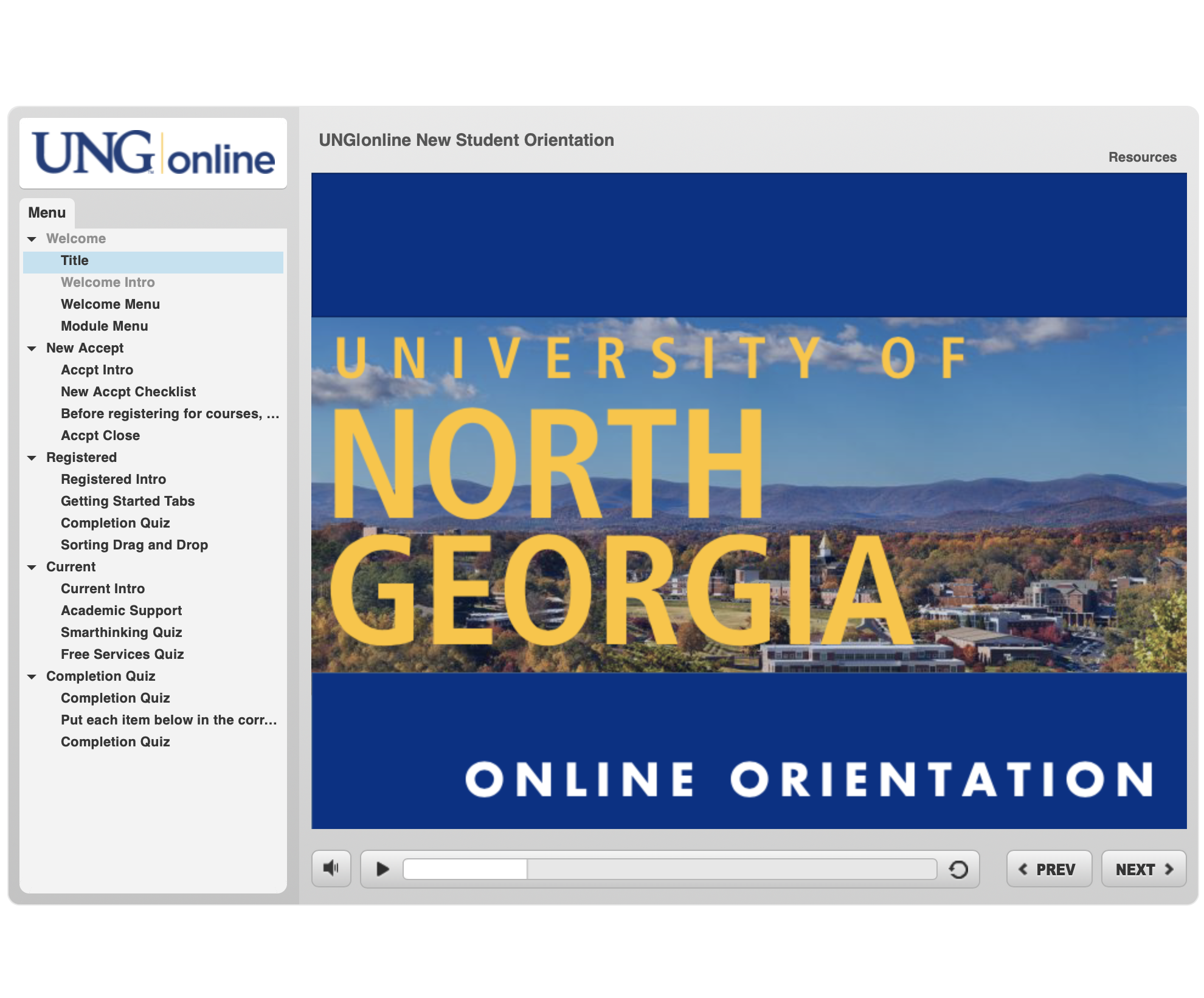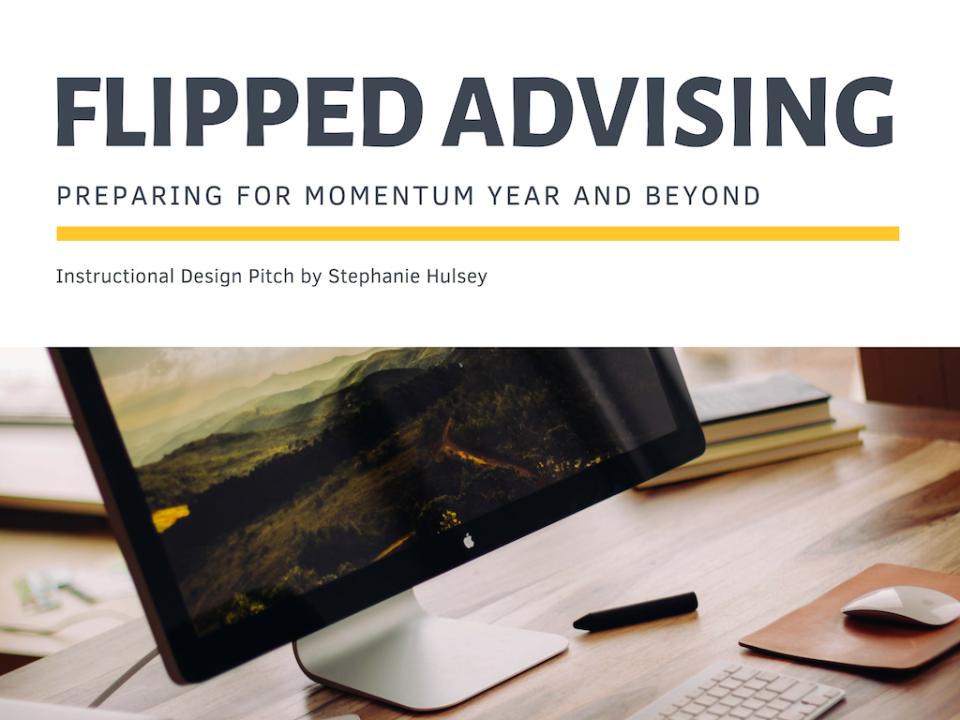Samples of Work
The links below will direct you to some of the projects mentioned above.

Orientation for New Online Students
You will need to be logged in to eLC to experience this SCORM module.

As I reflect on my time in this program, I think about how far I've come as a designer and instructor. One of the first projects that I completed in the program was an orientation module for new online students. While building the module, I thought I was doing a good job of assessing the learners needs, and presenting the information in a concise, interesting, and interactive way. The orientation included everything that I thought a new student might need, from how to log in to the LMS to how to be a successful online student. After completing the project, I realized that I was teaching students how to log in, but the module was SCORM ingested into our LMS, so students were required to log in before they were able to view the module. It is such an embarrassing moment to look back on. As a student, I thought I was demonstrating that I could plan instruction, effectively use a course authoring tool and publish the module to a LMS. As a designer, what was I thinking?! How did I not catch the blaring gap of information needed to access the instruction? This experience has certainly stuck with me, and makes me pause to carefully consider the most appropriate delivery method.
I'm thankful that this program included many opportunities to create, test, assess and revise our work. Almost all of my courses included opportunities for peer review and suggestions with time to revise as needed before submitting a final verson of our work for assessment. This modeling was an effective tool for demonstrating best practices as I design future courses. In the example that I described above, I didn't catch my mistake, but rather a partner in a 'desk crit' session did. I was able to practice the exercise and receive feedback from a formative activity before sumbitting my summative final project. As a rookie in the field, I'm so grateful that I had the ability to fail and learn from my missteps to improve future work.
When I began taking classes in this program, I worked in students services and had very little experience in designing instruction. After enrolling, I began seeking opportunities to practice instructional design as a student success coordinator and found that I should have been applying intentional instructional design to all of my projects. I decided to share my experiences in applying instructional design principles to student services work at a number of conferences around the state of Georgia with presentations at the Distance Learning Administration Annual Conference, Jekyll Island, June 2017, and the USG Teaching & Learning Conference, Athens, April 2017. I also attended the USG Interact Conferences in Atlanta (2017) and Athens (2018). Most recently I attended the NACADA Annual Conference in Phoenix, Arizona, in October of 2018, where I sought guidance on applying flipped instruction to student advising.
Now that I'm almost done with all of my coursework, I can happily say that I'm employed as an Instructional Designer, at the University of Georgia. There are several UGA COE graduates on the Instructional Design team in the Office of Online Learning, and I'm thankful for the ability to learn from my peers and our shared experiences each day.
The links below will direct you to some of the projects mentioned above.

